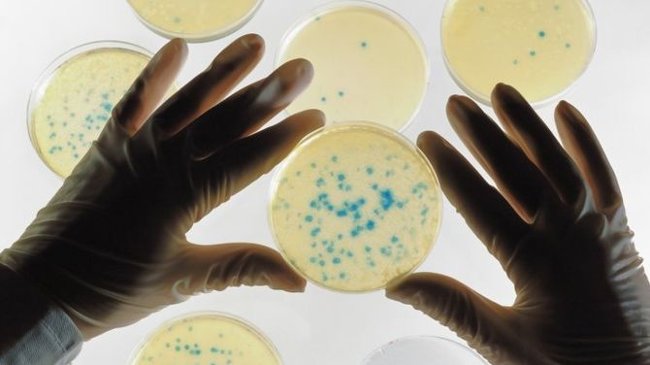Create a 'destructive switch' to control genetically modified organisms
Genetically modified organisms (GMOs) can help improve people's lives, but they also have the potential to turn into evil monsters. To control this risk, scientists are creating a "destructive switch ", which acts as an emergency shutdown for GMOs.
Generate an "emergency" switch for genetically modified organisms
Specially designed mechanisms will not only destroy genetically modified organisms if they escape from the laboratory, but also erase any traces of the genetic information used to create them. These "destructive switches " are being developed jointly by scientists from Massachusetts Institute of Technology (MIT) and Harvard University in the United States.
"You just need to plug in the part you want to remove in the genetically modified organism and when the system is turned on, it will remove the target DNA and hardly degrade other DNA," researcher Christopher Voigt of MIT explain.

This solution is described similarly to the anchor cylinder solution (register), which is based on train models.
This solution is described similarly to the anchor cylinder solution (register), which is based on train models. Just like with a train, the driver needs to put his hand on the lever or the register switch. If the driver is out of control, their hands will become loose and the brakes will work.
In the case of "destructive switches" for genomes, a certain chemical must always be present or the switch will activate and the organism will die. Another type of microbial destruction switch is Passcode , which requires a combination of three small molecules, such as molecules A and B, but completely absent from the C molecule. Designers can also choose any string or "passcode" they want.
Earlier this year, experts from Harvard and Yale University (USA) each published data from a study in which they modified the DNA of E. coli so that they could not survive if certain amino acids are missing (protein building blocks). These amino acids do not exist in nature, but are found only in the laboratory. Therefore, if the organism transforms the gene like the altered DNA E. coli out of human control, it will die.
This success has cut the risk of accidentally releasing genetically modified organisms as well as the inherent risk of producing and experimenting with self-replicating microorganisms. Because Passcode is effective against E.coli bacteria, researchers expect it to be effective for other bacteria as well.
- A way to control genetically modified organisms has been found
- Raising awareness about genetically modified organisms
- Biosecurity management with genetically modified organisms
- Genetically modified plants still cause doubts
- Scary effects of genetically modified plants
- Genetically modified food in Vietnam ever since?
- Genetically modified salmon in the US is controversial
- Things you should know about GMO genetically modified foods
- Genetically modified insects threaten genetically modified plants
- Using genetically modified foods is prone to cancer
- He called on the EU to approve genetically modified corn by voting
- Legislation of genetically modified corn harmful
 Green tea cleans teeth better than mouthwash?
Green tea cleans teeth better than mouthwash? Death kiss: This is why you should not let anyone kiss your baby's lips
Death kiss: This is why you should not let anyone kiss your baby's lips What is salmonellosis?
What is salmonellosis? Caution should be exercised when using aloe vera through eating and drinking
Caution should be exercised when using aloe vera through eating and drinking